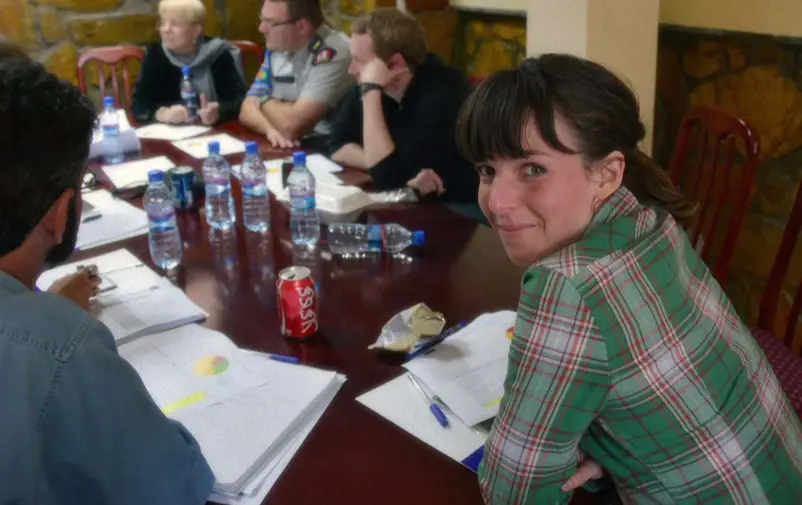
The 1325 Scholarship was established in memory of gender equality expert and peacebuilder Zaida Catalán.
The international peace and security order is facing significant challenges. A ceasefire agreement has now been signed regarding Gaza, providing a brief respite, opportunities for prisoner exchanges, and humanitarian access. However, many questions remain on the path toward a solution for lasting peace. It therefore remains essential to analyse existing systemic failures and develop sustainable approaches to peace and security.
– As Sweden’s agency for peace and security, FBA has a responsibility to lead a dialogue about what is not working, and about what is needed to build a stronger and more resilient international structure for peace. We need a structure that prevents violence, protects people, and defends democratic values, said FBA’s Director General, Per Olsson Fridh.
Why do genocide and other grave international crimes continue to occur despite existing prevention mechanisms? What factors are needed to create a more effective international order that protects civilians? These crucial questions were discussed in London when FBA and the International State Crime Initiative at Queen Mary University gathered leading researchers and experts in the field.
– Both researchers and practitioners hold valuable knowledge, understanding and experience about what it takes to prevent genocide. To achieve sustainable solutions, research and practice must come together. It is in the dialogue between academic insight and practical experience that real structural change can begin, said Professor Penny Green, Director of the International State Crime Initiative at Queen Mary University, of London
During the discussion, both researchers and experts emphasized that genocide must be understood as a process rather than a single event. Phenomena such as systematic dehumanization and weakening of a targeted group always form part of the process that leads up to genocide. If experts and decision-makers understand genocide as a process, we can develop effective mechanisms to save lives before it is too late.
The discussion also identified a catch-22 in genocide prevention. The 1948 Genocide Convention assigns states the responsibility to act to prevent genocide, yet states often wait for a court to formally determine that genocide has occurred before referring to it as such. As a result, the Genocide Convention offers limited support in preventive efforts, even though it remains central for ensuring accountability after a genocide has been committed. The international community therefore needs to consider mechanisms beyond the existing international legal framework to enable action at early warning signs that a genocide is being prepared.
During the seminar, experiences from Myanmar, Bosnia and Herzegovina, Rwanda, and other parts of the Middle East were also highlighted. Finally, it was noted that because genocide is a political project, genocide prevention must also be one. Systematic efforts to prevent genocide are yet to be developed, and there is great potential to develop a structured approach where practitioners, policymakers, researchers, and grassroots organizations work together to save lives through early, collective action.
As Sweden’s Agency for Peace and Security, FBA has a particular responsibility to initiate and lead dialogues on current and future challenges to international peace and security. By bringing together researchers and practitioners, FBA contributes to a knowledge-based discussion on how violence can be prevented, people be protected, and how peace and security can be built in a sustainable way.
MORE FROM HOME
Are you a young peacebuilder at the beginning of your career with a strong commitment to women, peace and security? Do you have experience working in this field in the Democratic Republic of Congo or Afghanistan and want to take your commitment to the next level? Then you have the opportunity to apply for the 1325 scholarship for 2026.
2025-11-06 15:30FBA has both increased and adapted its work in Ukraine in the wake of Russia's invasion.
FBA in UkraineKlara Grenhagen works as a specialist at FBA's Africa unit with a focus on dialogue, reconciliation and peace processes.
More about our expertsFBA is part of Sweden’s development aid within the area of peace and security
Read more about the countries where we work